The delegation, consisting of female ambassadors, diplomats’ spouses, and representatives from ASEAN embassies, took part in a cultural exchange, exploring Vietnam’s parliamentary heritage, archaeological artifacts, and traditional tea culture.
Exploring Vietnam’s parliamentary history and ancient relics
During the visit, Mrs. Nga guided the delegation through the National Assembly’s traditional exhibition hall, which houses historical images, documents, and records of Vietnam’s legislative development.
The group also learned about Vietnam’s foreign affairs initiatives and the achievements of the 15th National Assembly.
The delegation was then introduced to the underground archaeological display beneath the National Assembly House, where they viewed historical relics from ancient Thang Long.
The exhibition features approximately 400 artifacts and nearly 10 archaeological sites, offering insights into Vietnam’s cultural and architectural heritage.
One of the highlights was a recreated Ly Dynasty palace setting, designed to resemble an excavation site. The display also includes 42 illuminated pillars, representing the original wooden columns of a royal structure from the Ly period.
To further enrich their understanding, the visitors watched a documentary about the Imperial Citadel of Thang Long, providing a historical perspective on the significance of the site.
Strengthening ASEAN cultural ties
The ASEAN Women’s Community Group (AWCH) was founded in 2015, coinciding with the formation of the ASEAN Community. The group aims to strengthen connections among ASEAN women and international partners while promoting cultural exchange and social engagement.
Initially comprising ASEAN member states, AWCH has since expanded to include 19 ASEAN partner countries. Over the years, it has organized various activities such as ASEAN Family Day, the ASEAN Food Festival, and numerous charitable initiatives supporting disadvantaged women and children.
Sujatha Ramachandra, spouse of the Singaporean Ambassador, praised AWCH’s contributions to promoting ASEAN’s diverse cultural identity. She highlighted the group’s role in fostering regional solidarity, progress, and prosperity.
She emphasized that AWCH’s work aligns with ASEAN’s vision of unity and development, and that its members will continue striving toward shared goals for a stronger and more connected ASEAN community.
A taste of Vietnamese tea culture
The event concluded with a traditional Vietnamese tea ceremony, where artisans introduced the diplomats to the rich flavors and cultural significance of Vietnamese tea.
The tea master explained that tea is an integral part of Vietnamese hospitality, symbolizing warmth, connection, and tradition.
Offering tea to guests is a meaningful ritual that represents friendship and the beginning of heartfelt conversations.
Mrs. Nga presented traditional Vietnamese gifts to the AWCH members, expressing her hope that the group would continue fostering strong relationships among ASEAN women.
She emphasized that their contributions extend beyond supporting their families, as they also play an essential role in shaping community development and regional cooperation.
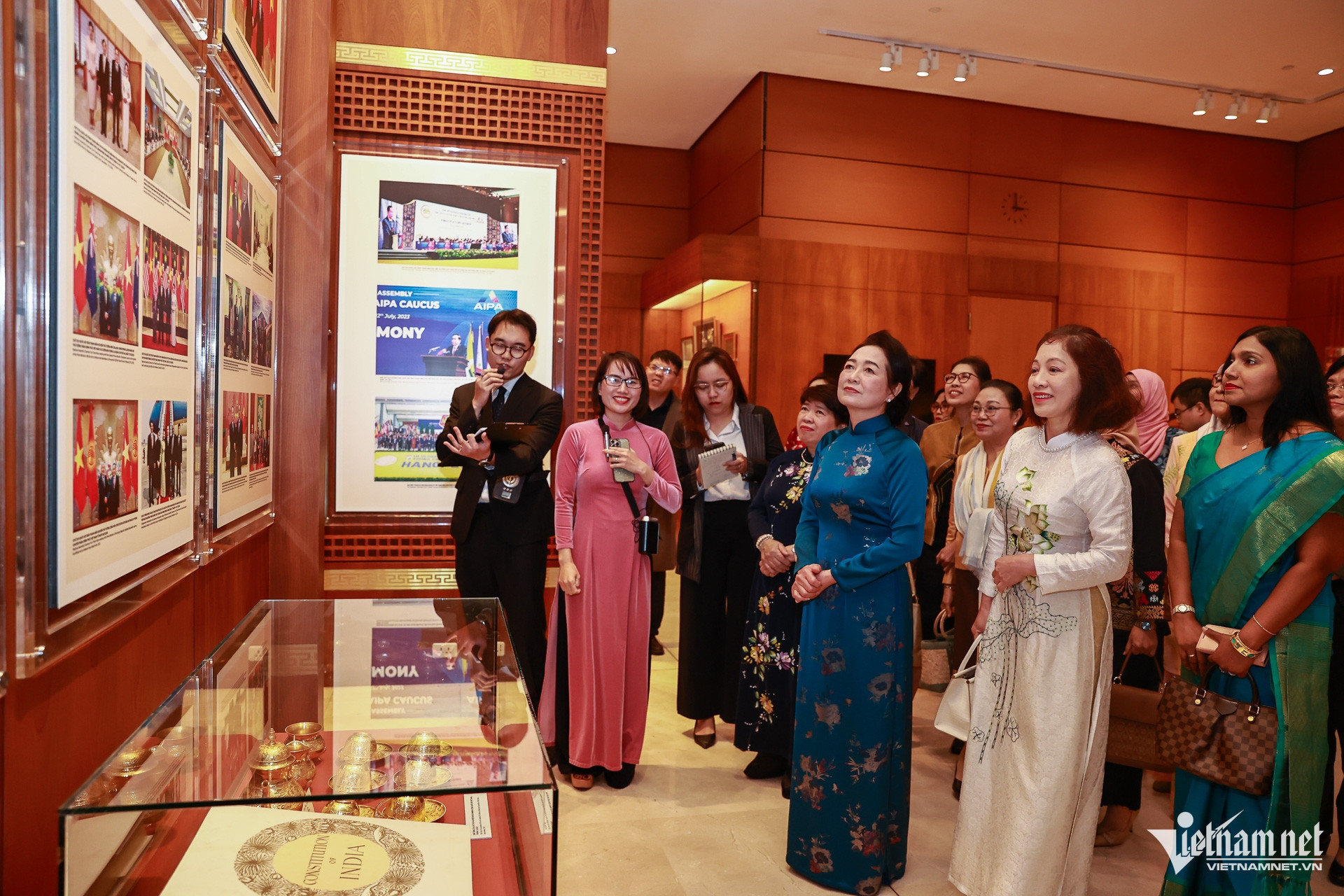
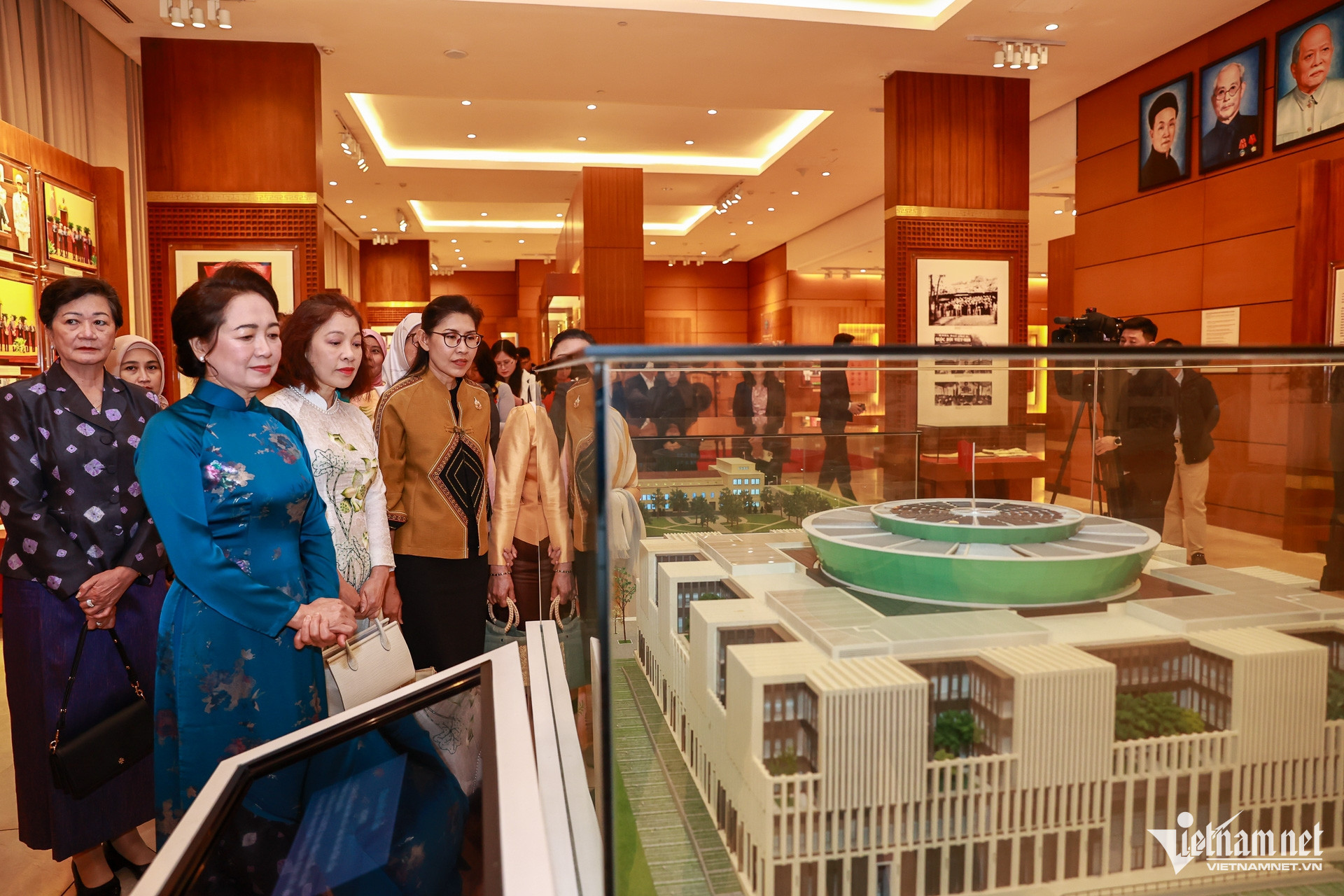
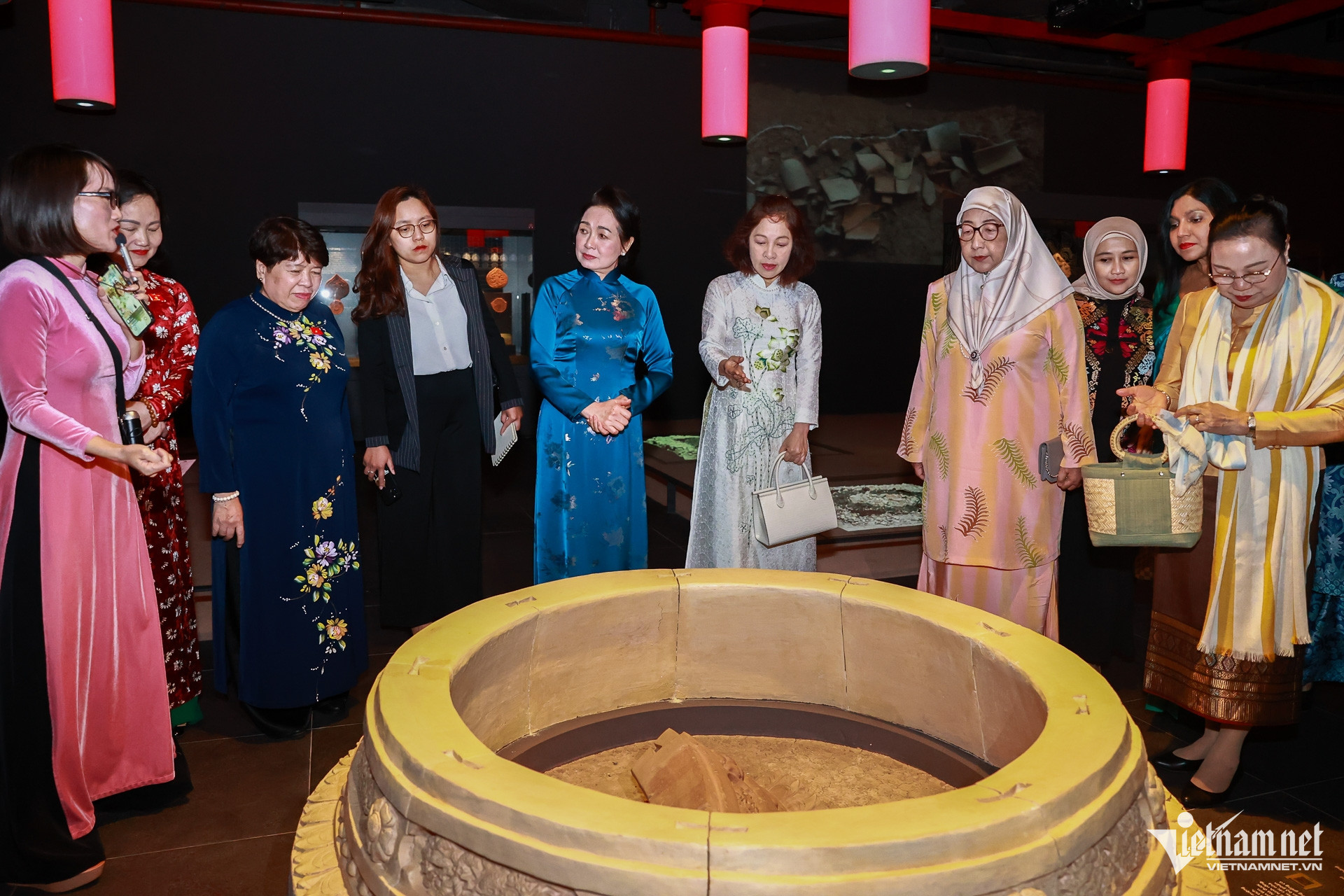

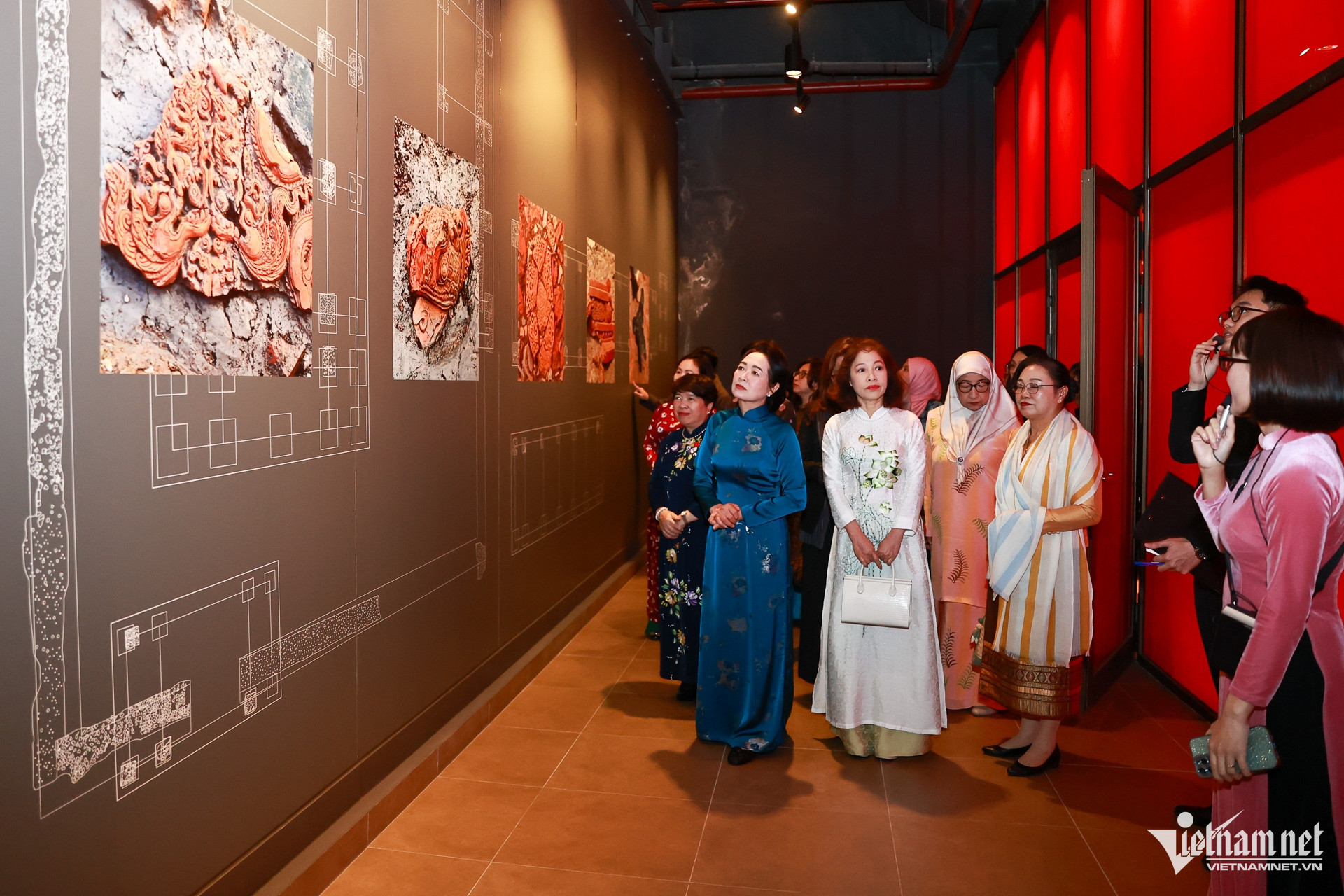
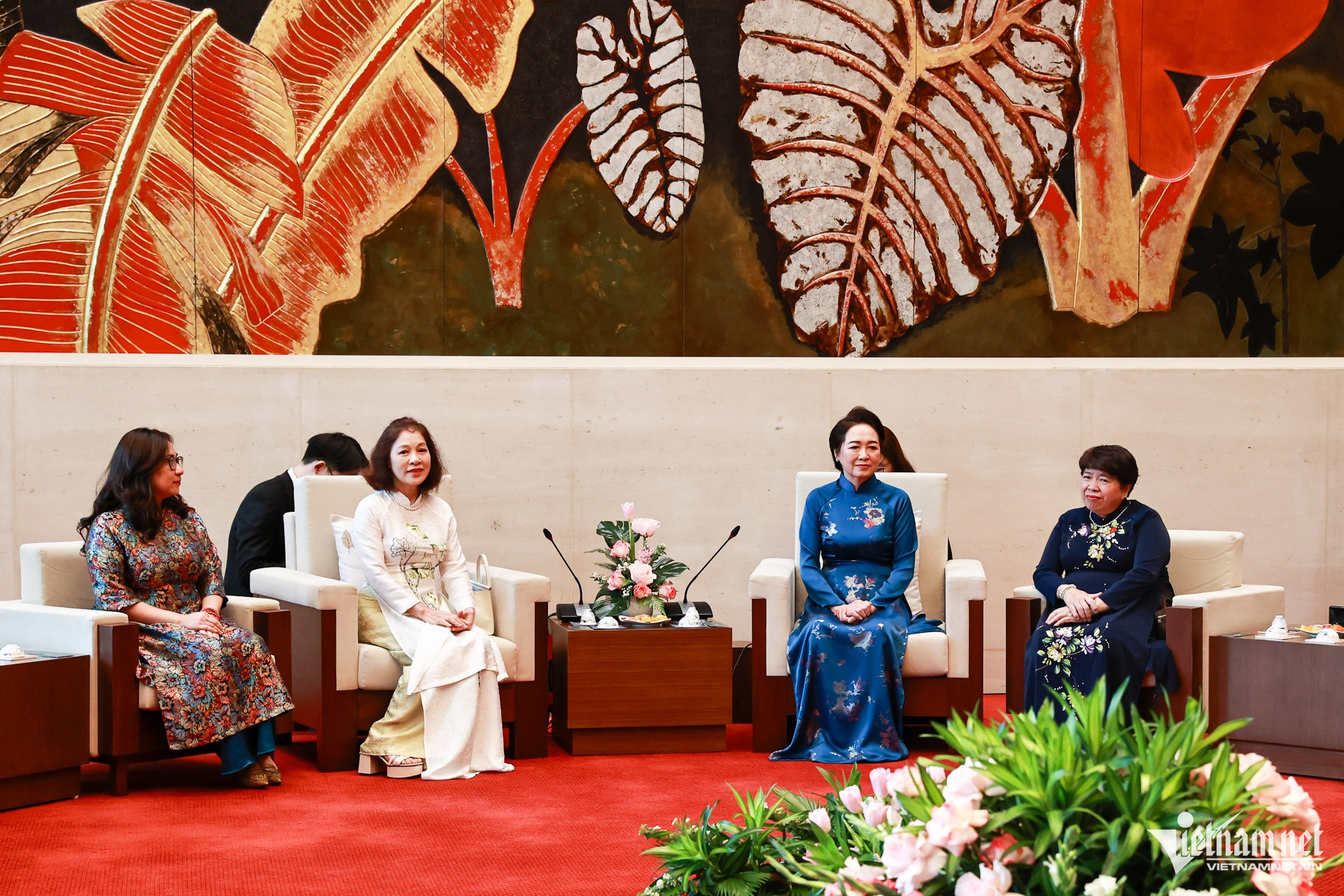
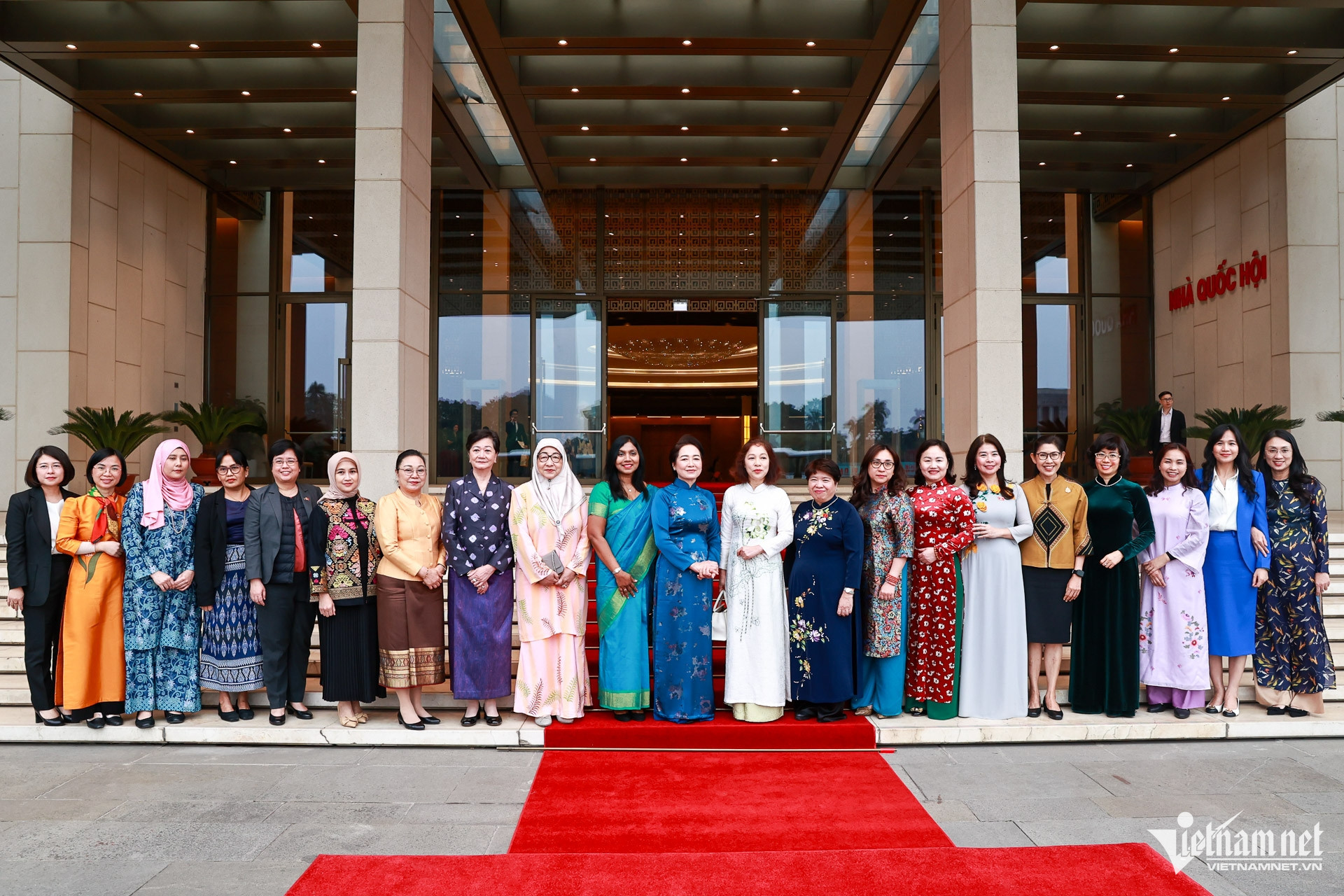
Tran Thuong - Pham Hai